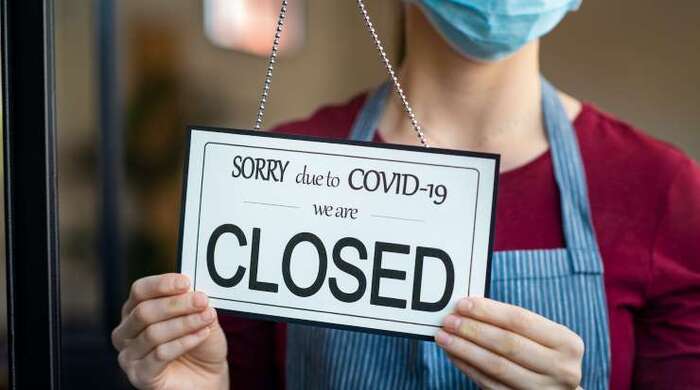When cities and states around the country began imposing lockdowns and closing places of business in March, most restaurateurs probably assumed that they’d be taking only a temporary break. With that in mind, many tried — with varying degrees of success — to keep going in the interim with takeout and delivery services. As the lockdown stretched on and on, though, even those who had been able to struggle through the crisis began to wonder if they’d ever be able to recover financially from months of lost or diminished business.
Even as restaurants were gradually allowed to reopen for outdoor and limited indoor service, many found it impossible to break even. And when jurisdictions that had eased the rules for dining out were forced to reimpose them as COVID-19 cases spiked in various parts of the country, many operators simply gave up. (These are states where recently reopened bars and dining rooms are closing again.)
As with so much else related to the pandemic, the restaurant landscape changes constantly. According to the trade newsletter Restaurant Dive, “Unlike retail, restaurant closures have fluctuated from March through July based on the rapidly evolving and disparate mandates that have been put into place at local levels.”
At one stage, food service business analysts predicted that major chains might have a better chance of surviving shutdowns and capacity restrictions than independents. This doesn’t appear to have been the case, with such enterprises as TFI Fridays, Denny’s, IHOP, and Dunkin’ shutting down numerous units, and standbys like California Pizza Kitchen declaring bankruptcy.
Independent restaurants are being affected even more, however. According to a study conducted for the Independent Restaurant Coalition, as many as 85% of the nation’s smaller restaurant groups and individual establishments might close permanently by the end of 2020. With a leadership team that includes such culinary stars as José Andrés, Tom Colicchio, Andrew Zimmern, and Nancy Silverton, the Coalition is an organization of hundreds of independent operators dedicated to trying to save America’s restaurant industry.
Pointing out that their industry employs some 11 million people, the Coalition is currently lobbying Congress to pass a $120 billion bailout bill for small and medium-size restaurants. Whether or not they are successful, it is obvious that restaurants are among the small businesses that need the most help during the COVID-19 crisis.
Meanwhile, some of the country’s most popular eating places — including everything from decades-old institutions to newcomers that were smash hits before the pandemic hit — have been transitioning from temporary to permanent closure with alarming speed. Even celebrity chefs on the order of Andrés, Wolfgang Puck, Thomas Keller, David Chang, and Daniel Boulud have been victims of the pandemic’s brutal impact.

